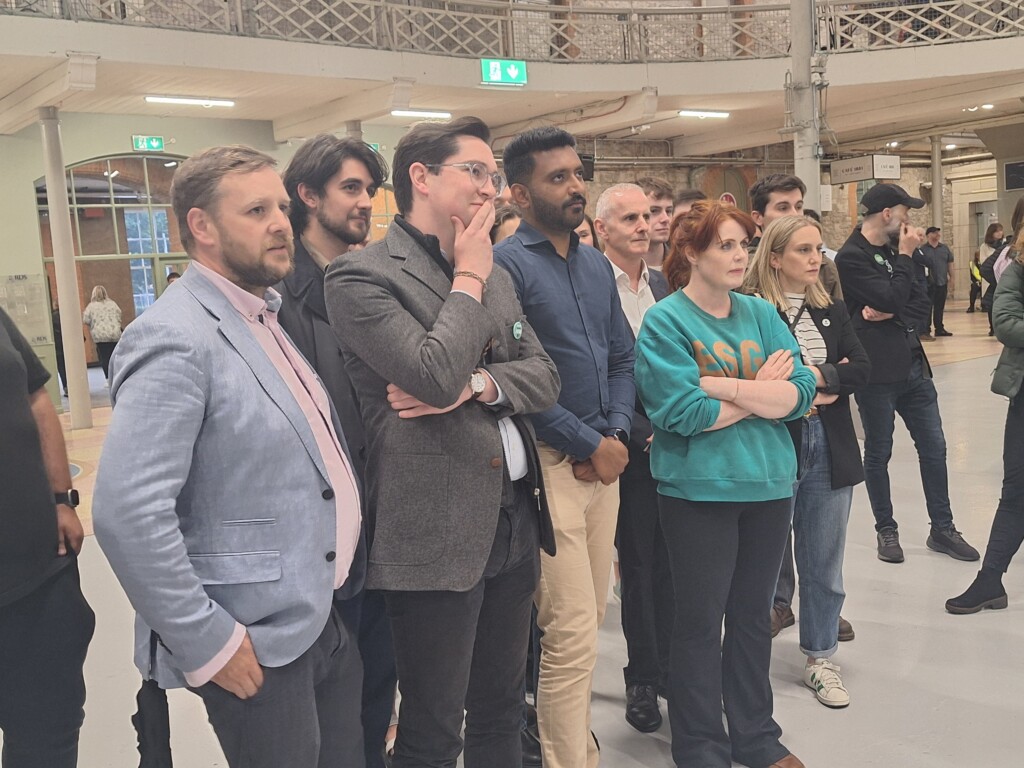The Greens are looking to bounce back from June’s electoral setback as the party gears up for a general election.
Incumbent TD Neasa Hourigan is looking to hold onto her seat in Dublin Central, while Conroy is hoping to make it third time lucky in her bid for a Dáil seat.
Hourigan’s victory in 2020 was a breakthrough for the Greens, with her victory making her the first-ever Green TD for Dublin Central.
More recently, the poll-topping performance of Feljin Jose in Cabra-Glasnevin points to the Green message still being healthy in that particular part of Dublin despite losses elsewhere.
Victory for Janet Horner in the marathon North Inner City election race, perhaps the most difficult constituency for a candidate in June’s local elections, also points to the Green machine still having life in it.
Cabra-Glasnevin is carved up like the West and East Berlin thanks to recent Dáil boundary redraws; the most western part of the constituency, Ashtown, is in Dublin West at a Dáil level but the rest of Cabra-Glasnevin falls within the confines of Dublin Central at a Dáil level.
Conversely, North Inner City, where the Greens saw victory in June spans from Stoneybatter all the way down to the 3Arena (with stops in Ballybough and Stoneybatter) and also exists within Dublin Central.
Hourigan will have to see off competition from local Labour senator Marie Sherlock, Fianna Fáil’s Mary Fitzpatrick, incumbent Social Democrats TD Gary Gannon as well as heavyweights such as Fine Gael’s Paschal Donohoe and Sinn Féin’s Mary Lou McDonald.
Dublin West gaining an extra Dáil seat while Dublin Central remains on four (despite Dublin Central seeing roughly as much population growth as Dublin West) will likely lead to a lot of broken hearts at the count centre for Dublin Central.
Elsewhere on the western front for the Greens, Caroline Conroy is looking to make it 3rd time lucky in her bid for a Dáil seat.
Ballymun-Finglas councillor Caroline Conroy was among the high-profile Green candidates to lose her seat in June, with Conroy having served as Lord Mayor of Dublin between June 2022 and June 2023.
Conroy’s loss can be attributed to a number of factors, such as turnout in Ballymun-Finglas increasing 4% compared to 2019 and the left-wing/soft left vote being less split than it was in 2019.
The Workers’ Party and Independents4Change didn’t field candidates in Ballymun-Finglas in 2024, whereas they did in 2019; their absence on the ballot paper led to stronger Sinn Féin and People Before Profit performance, which ultimately squeezed out Conroy.
In 2019, Conroy secured 7.4% of first preferences and rode the wave to get elected on the 14th count after proving transfer-friendly.
In 2024, the Green Wave dissipated and Conroy’s share of the vote dropped to 5.8% and was eliminated on the 8th count.
The loss will be counteracted by Conroy having experience on the campaign trail, as she was previously the Green Party candidate in Dublin North-West in 2016 and 2020.
She will now make a third attempt at becoming a TD in the upcoming general election.
In her 2016 general election outing, Conroy secured 2.5% of first preferences before increasing it to 4.8% in 2020, the strongest-ever showing for the Greens in Dublin North-West.
The 3-seater nature of Dublin North-West will make it an uphill battle for Conroy – Conroy’s old sparring partner Conor Reddy is lining out for People Before Profit and was among those to win a seat in Ballymun-Finglas in June.
Rory Hearne will be running for the Social Democrats, who have proven their ability to mop up the progressive vote the Greens had a monopoly on in 2019 and 2020.
Case in point, Mary Callaghan of the Social Democrats, who actually saw a drop in the share of first preferences in Ballymun-Finglas in June (7.7% compared to 2019’s 8.7%) proved more transfer-friendly in the way the Greens weren’t able to and was able to hold onto the seat.
